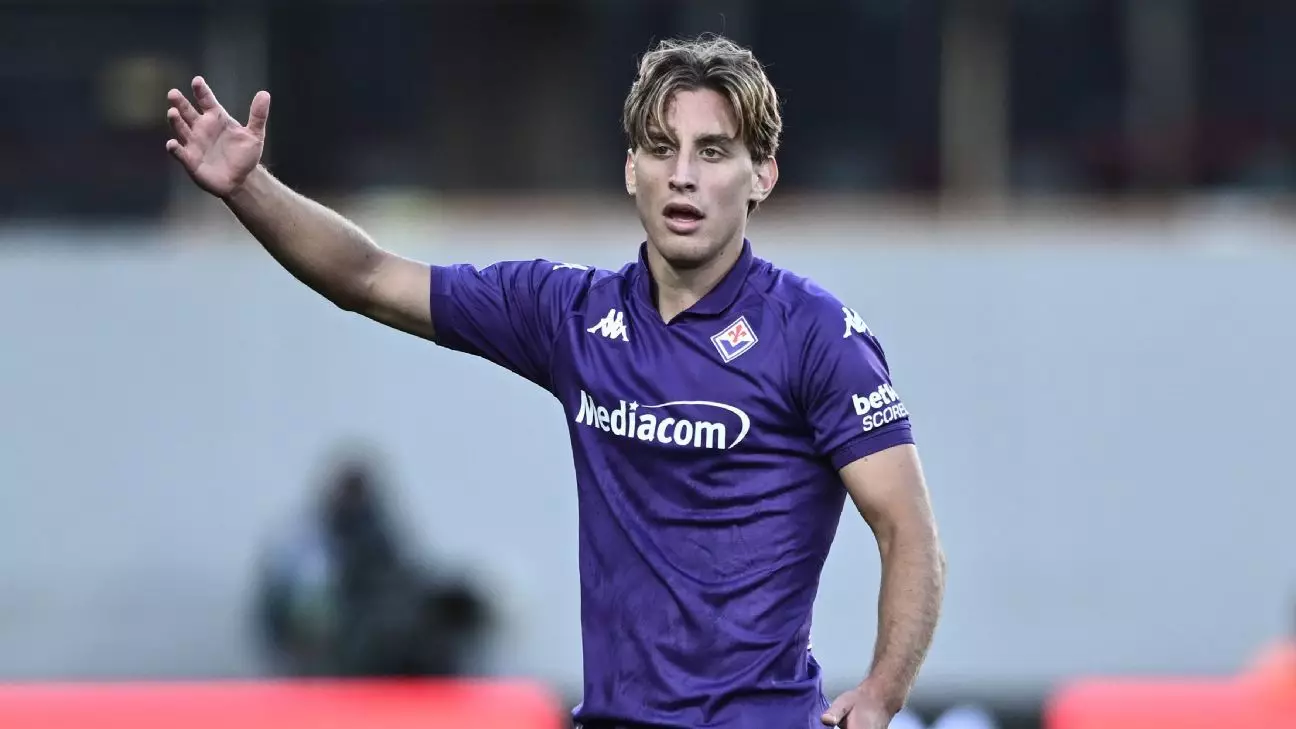On December 1, during a high-stakes Serie A match, Edoardo Bove, a 22-year-old midfielder for Fiorentina, unexpectedly collapsed on the field. This shocking incident highlighted not only the health risks athletes face but also the immense emotional weight carried by professional footballers. Following his collapse, Bove underwent surgery to have a defibrillator implanted, a procedure that speaks to the gravity of his situation and the rigorous oversight required in modern sports medicine.
Post-surgery, Bove spent two weeks in a Florence hospital, a period during which he reflected deeply on his experience and the sport he loves. Upon his discharge, he returned to the training ground, visibly grateful and more grounded than many might expect from a young athlete. His heartfelt gratitude was shared through a poignant Instagram post, where he expressed that the incident revealed to him that football transcends mere competition. For Bove, it’s a testament to community, empathy, and genuine human connection, reminding us all that life and health take precedence over career milestones.
The Support That Illuminates Dark Times
Bove’s recovery was bolstered not only by medical professionals but also by an outpouring of support from fans, teammates, and even adversaries. This solidarity reflects an often-unseen dimension of sports: the way athletes support one another in times of crisis. The ‘authentic spirit’ that Bove spoke of encapsulates a crucial understanding that beyond rivalries, there exists a shared humanity among players. The overwhelming kindness and encouragement he received gave him the fortitude to navigate this challenging chapter, showcasing the resilience found in community support.
In his reflections, Bove aimed to remind both fans and players of the sport’s essence. His call to “not let ourselves be overshadowed by the commercial side” emphasizes the need to cultivate a culture that prioritizes safety, mental health, and genuine passion over monetary gains. As football continues to evolve into a multi-billion dollar industry, the risk of losing sight of its core values increases. Bove encourages a shift back to recognizing the sport as a unifying force rather than just a lucrative venture.
While Bove did not specify when he would return to the pitch, his optimistic sign-off, “See you soon… on the pitch!” embodies a resilient spirit that is central to the culture of sport. Despite his newfound diagnosis as a player with a defibrillator, his determination to overcome this obstacle is both inspiring and a testament to his character. Bove’s experience serves as a valuable reminder to athletes and fans alike about the importance of health and the powerful bonds formed through shared experiences in sports.
In the end, Bove’s incident emphasizes a fundamental truth: while football may be a game, the lives behind the players and the communities they represent are what truly matter.

